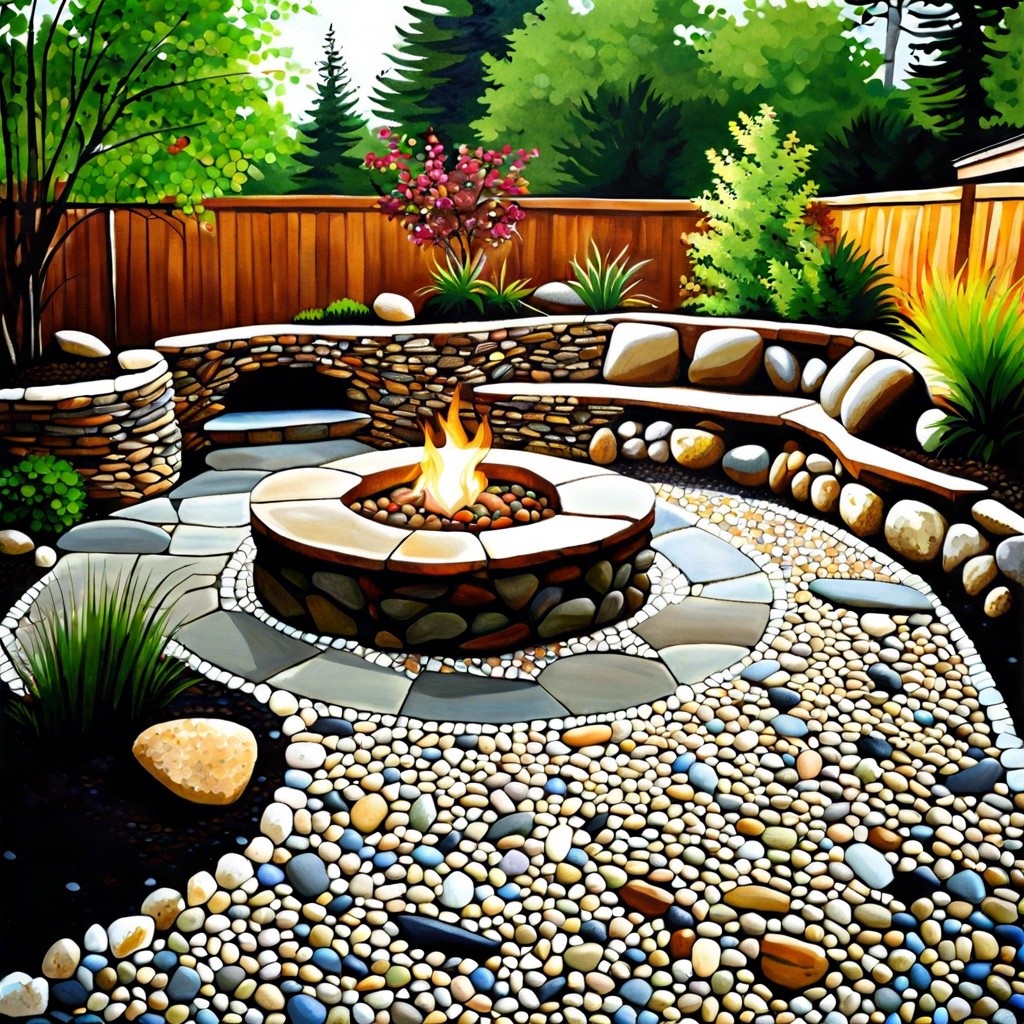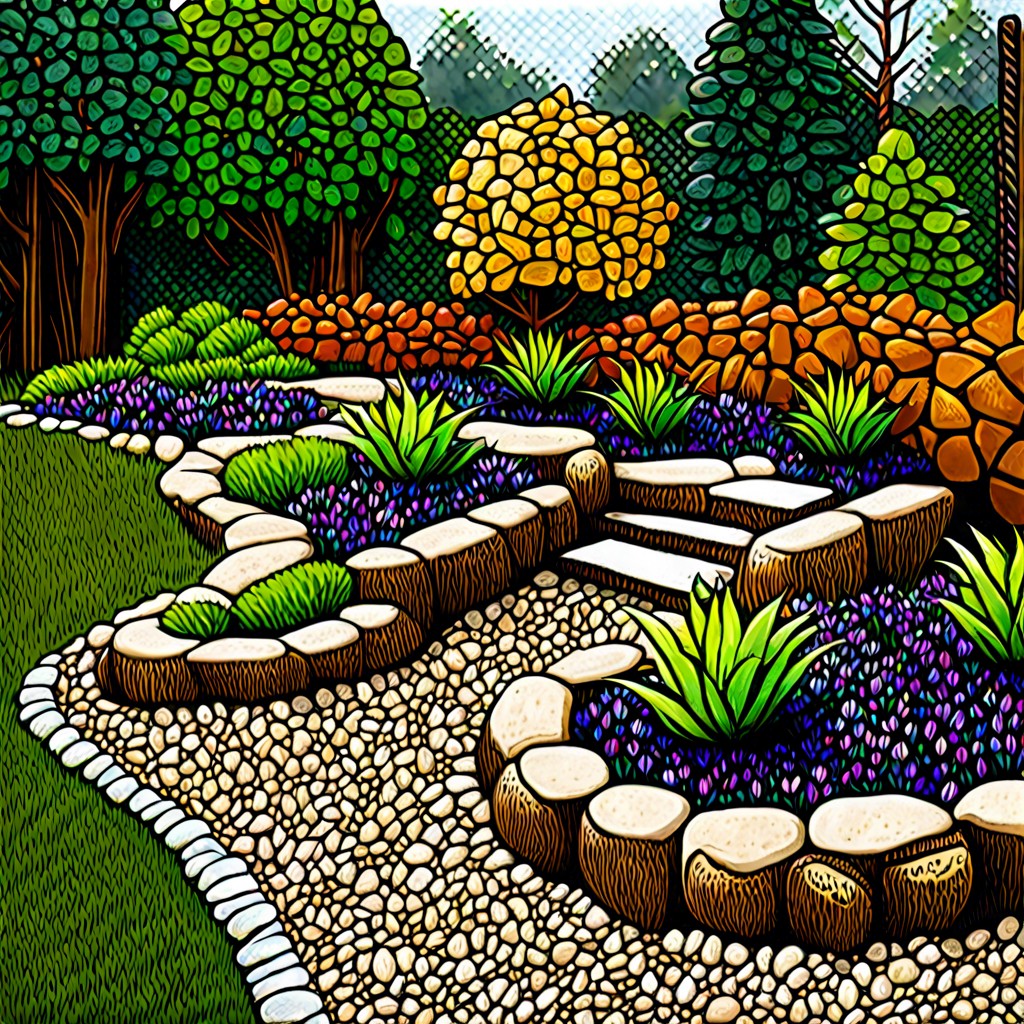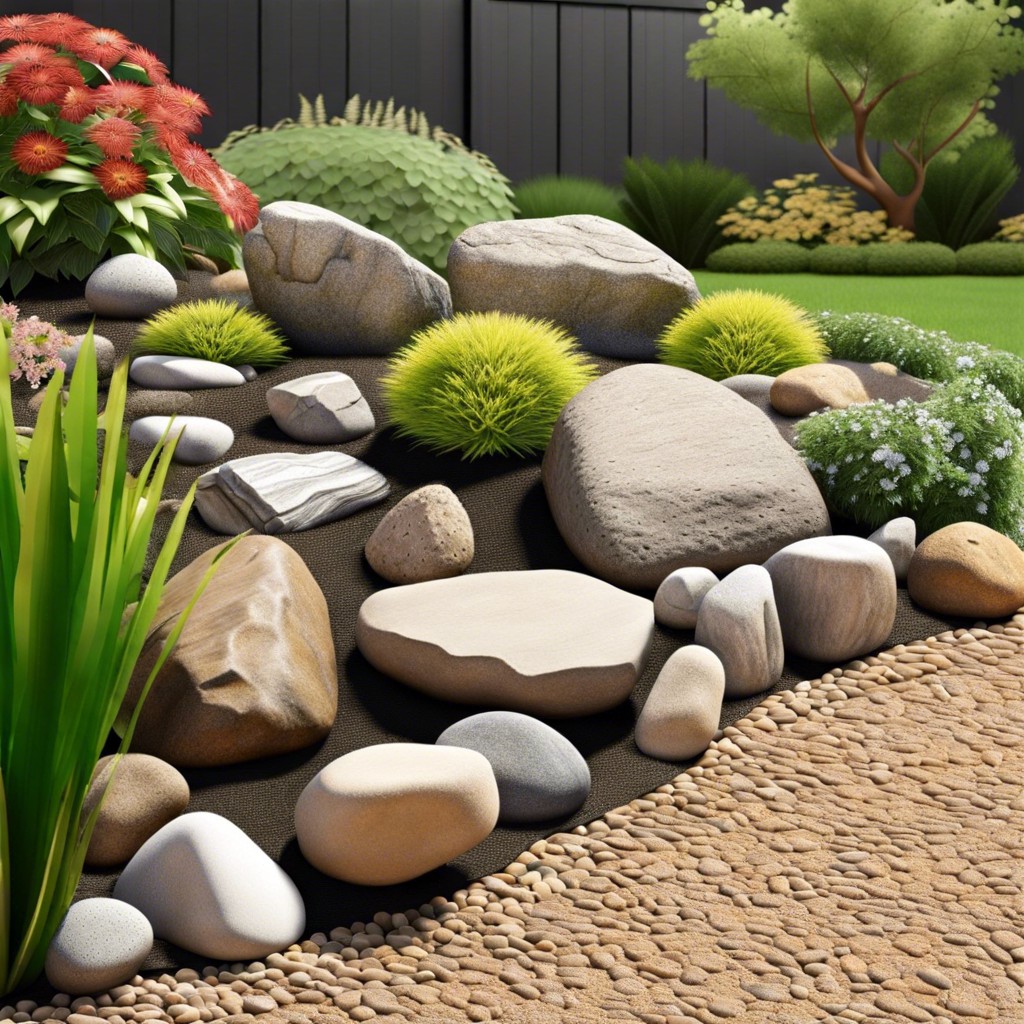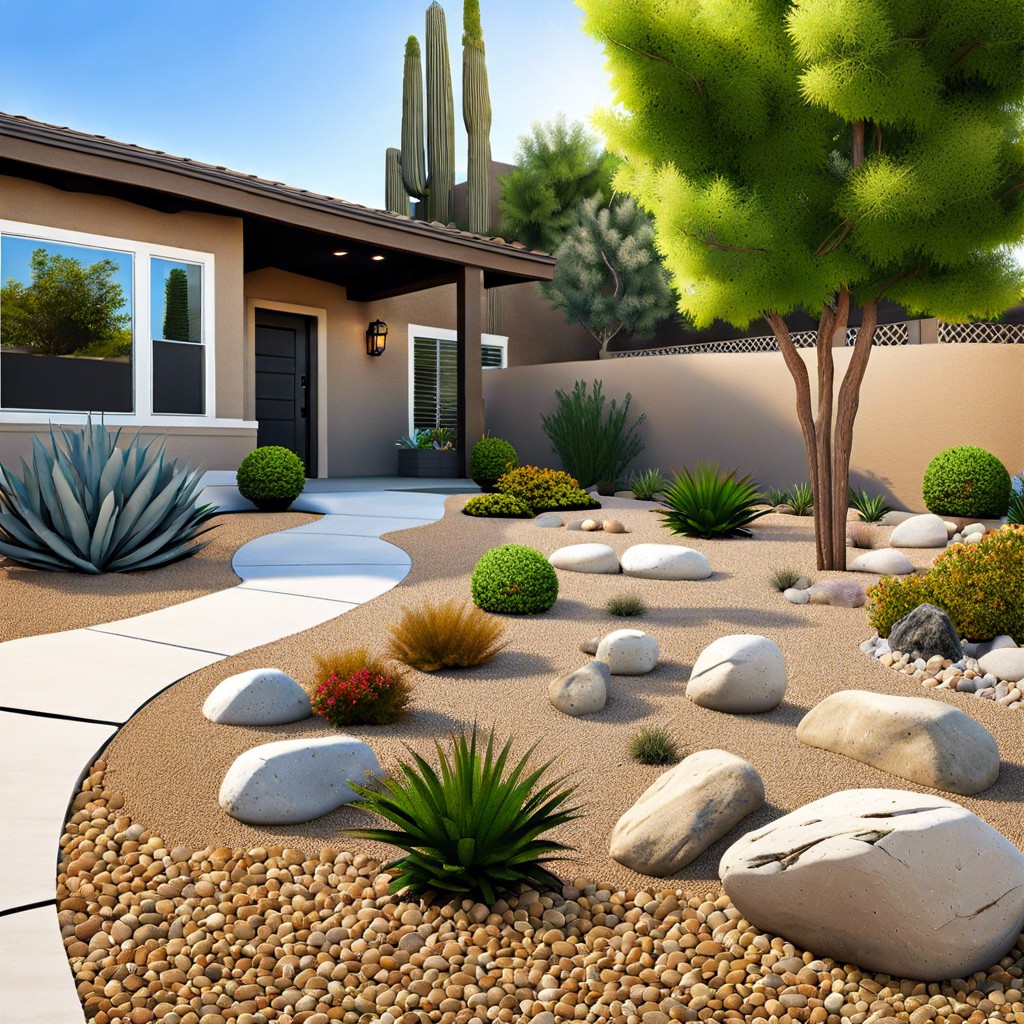Discover the essential considerations for selecting the perfect river rock for your landscaping or construction projects in our comprehensive buying guide.
Key takeaways:
- River rock characteristics: size, shape, and color variations.
- River rock formation and composition: geology and mineral content.
- Landscaping benefits: aesthetic appeal, drainage, low maintenance, versatility, heat retention.
- Environmental impact: erosion control and water filtration.
- Sourcing river rock: local quarries vs. garden centers.
Definition and Characteristics of River Rock
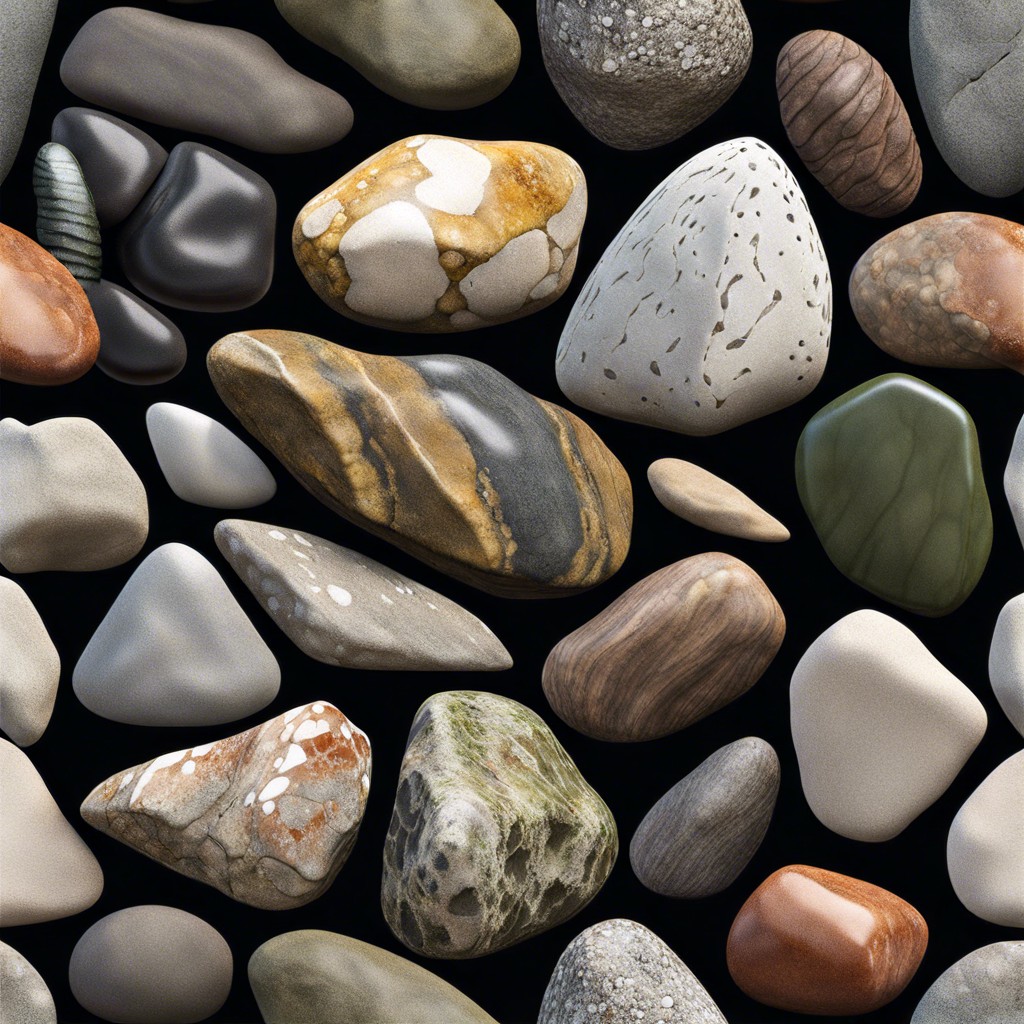
River rocks are naturally rounded stones, typically found in stream beds and riverbeds. Over time, the flowing water erodes the edges of these rocks, giving them a smooth and polished appearance.
They vary in size, from small pebbles to larger boulders, and come in an array of colors including browns, grays, whites, and even pinks or blues. This variation is due to the differing mineral content of the rocks, which themselves can be sedimentary, igneous, or metamorphic in origin.
The characteristics of river rock, such as its size, shape, and color, make it a popular choice in landscaping and construction projects, prized for both its aesthetic appeal and versatility.
Geology of River Rock: Formation and Composition
River rocks are the product of a fascinating natural process. Over time, flowing water in rivers tumbles rocks downstream, gradually smoothing and rounding their edges. This journey can span hundreds or even thousands of years, during which the relentless motion erodes away the rough exterior of each stone, creating the polished pebbles we find today.
The composition of these rocks is as varied as the landscapes they travel through. They can be made up of different materials like quartz, basalt, granite, or limestone, depending on the geological makeup of the riverbeds where they originate. Each type of mineral lends a unique color and texture to the rocks, offering an array of choices for different applications.
From their diverse origins, river rocks carry a story of the Earth’s natural history. They are snapshots of the environments they’ve passed through, with characteristics that reflect the minerals abundant in those areas. For example, rocks from a region rich in iron may exhibit reddish hues, whereas areas with a lot of quartz might contribute to a collection of more translucent and lighter-colored stones.
Eager to lay nestled in your garden or adorn your pathways, river rocks await their next destination, far from the riverbeds they once called home.
River Rock in Landscaping: Uses and Benefits
River rock is a popular choice for enhancing outdoor spaces thanks to its natural beauty and functional qualities. Here are a few reasons why this versatile material could be the perfect addition to your landscaping project:
1. Aesthetic Appeal: These smooth, rounded stones offer a variety of colors and sizes, adding texture and a pleasing aesthetic to garden beds, pathways, and water features.
2. Drainage Solutions: When used in areas prone to water accumulation, river rock facilitates excellent drainage, preventing soil erosion and protecting plant roots from waterlogging.
3. Low Maintenance: Unlike organic mulch, river rock doesn’t decompose, meaning it doesn’t need to be replaced frequently. It also suppresses weed growth, reducing the need for weeding and the use of herbicides.
4. Versatility: Whether you’re aiming for a minimalist Japanese garden or a rustic, wildflower look, river rock can adapt to a wide range of design styles, making it a flexible choice for many gardeners.
5. Heat Retention: The stones retain heat from the sun, which can help insulate plants in cooler temperatures and extend the growing season for some species.
Incorporating river rock can add both form and function to your outdoor space, creating a harmonious balance between utility and natural elegance.
Environmental Impact: Erosion Control and Water Filtration
River rocks are well-regarded for their natural ability to protect the environment in a couple of significant ways. Their smooth, rounded surfaces are not just aesthetically pleasing but serve a functional purpose in erosion control. When strategically placed along shorelines, streambeds, or on slopes, these stones absorb and disperse the energy of flowing water, which can help prevent soil from being washed away. This is key in maintaining landscape integrity and preventing loss of fertile ground.
Moreover, river rocks play an essential role in water filtration. When used as a substrate in riverbeds or as a part of a constructed wetland or drainage system, they act as a natural filter. As water passes through the gaps between the stones, debris, and some contaminants are trapped. This process aids in cleaning the water, much like a sieve, ensuring healthier ecosystems in and around water bodies.
The functionality of river rocks in these environmental processes showcases their value beyond decoration, offering a practical solution for conservation and sustainable land management practices. Their implementation in natural and engineered settings speaks to a harmony between human use and environmental preservation.
How to Source River Rock: Local Quarries Vs. Garden Centers
When considering where to acquire river rock for landscaping or construction, exploring local quarries and garden centers can present cost-effective and practical options.
Local Quarries:
- Typically offer a broader selection of river rock sizes, from small pebbles to larger stones.
- Prices may be lower due to the absence of a middleman.
- Buying in bulk is usually an option, which is ideal for larger projects.
- Keep in mind the need for appropriate transportation, as quarries may not deliver.
Garden Centers:
- Ideal for homeowners needing smaller quantities or a variety of decorative stones.
- Convenient for those looking for pre-bagged rock, which is easier to transport.
- Offers expert advice on choosing the right type of river rock for your specific project.
- Some garden centers may provide delivery services, adding to the convenience.
